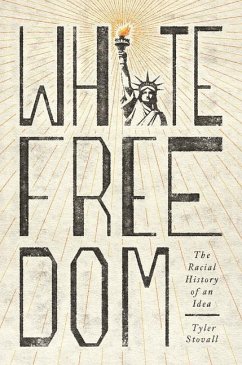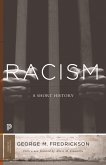The era of the Enlightenment, which gave rise to our modern conceptions of freedom and democracy, was also the height of the trans-Atlantic slave trade. America, a nation founded on the principle of liberty, is also a nation built on African slavery, Native American genocide, and systematic racial discrimination. White Freedom traces the complex relationship between freedom and race from the eighteenth century to today, revealing how being free has meant being white. Tyler Stovall explores the intertwined histories of racism and freedom in France and the United States, the two leading nations that have claimed liberty as the heart of their national identities. He explores how French and American thinkers defined freedom in racial terms and conceived of liberty as an aspect and privilege of whiteness.
Hinweis: Dieser Artikel kann nur an eine deutsche Lieferadresse ausgeliefert werden.
Hinweis: Dieser Artikel kann nur an eine deutsche Lieferadresse ausgeliefert werden.








